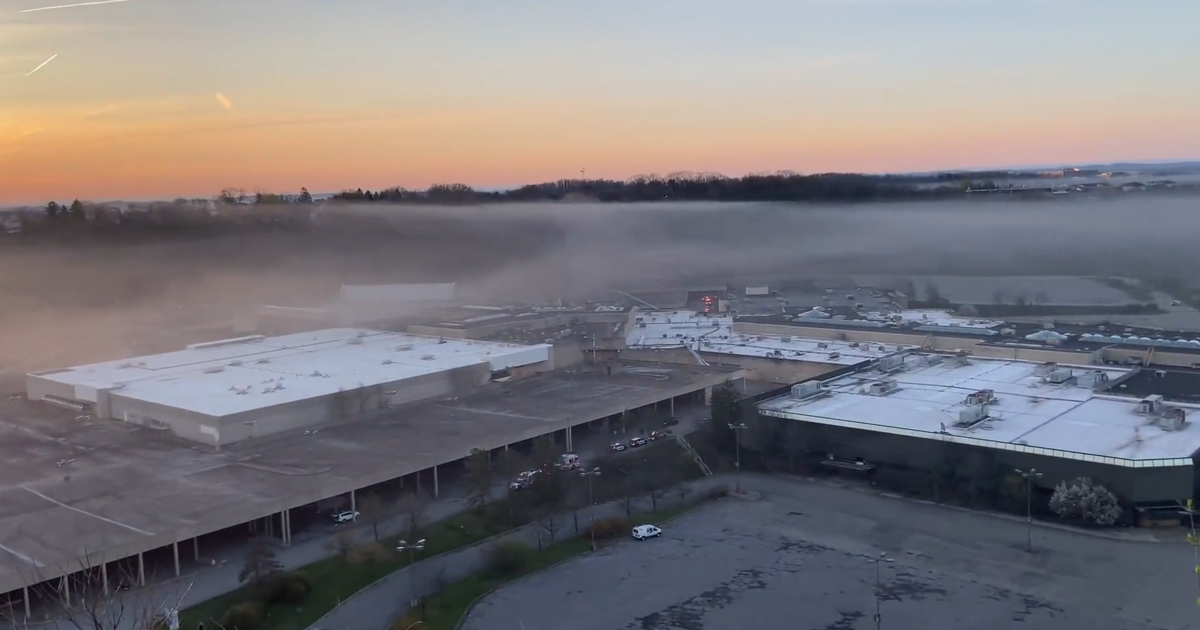Cancer Researchers Continue Work On John Kanzius' Machine
HOUSTON, Texas (KDKA) -- One of the nation's top cancer doctors is working with a machine that could end up being a major breakthrough in treating the killer disease.
It was four years ago when John Kanzius showed KDKA's David Highfield his idea to use radio waves to kill cancer.
He had been diagnosed with leukemia.
"And I said to my wife, 'There has to be a better way to treat cancer,'" Kanzius said.
That better way came from what he knew best - the world of radio. Radio waves are traveling between two boxes.
"Now if I crank it up higher - you can see how bright the bulb gets," Kanzius said. "The interesting thing is - you put your hand in here and you don't feel anything."
But the waves will heat up microscopic pieces of metal injected into the body – they're called nanoparticles – and Kanzius at the time gave KDKA's David Highfield an idea to describe them.
"To give you some perspective, imagine this dime is a nanoparticle. That means the cancer cell is the size of Heinz Field, so you can see how small these nanoparticles really are."
He wondered if those nanoparticles could be directed just to cancer cells and then heated up to kill the cancer without the side effects of chemotherapy.
"I don't know whether I'll be around for it to make a difference - but it was never about me anyways - it was really about others," Kanzius said.
Kanzius died three months later.
"I promised him in one of the very dark days of his illness that I would do everything in my power to see it through," Marianne Kanzius, Kanzius' widow, said.
And that's become her mission. She tells KDKA's David Highfield they're now preparing to go to the FDA for permission to test the machine on people.
"He would be very pleased," she said. "The only thing he wouldn't like is he'd like to see it done faster."
At MD Anderson Cancer Center in Houston, Texas, there are 15 people devoted to making John Kanzius' dream a reality.
The research team is led by Dr. Steven Curley who also made Kanzius a promise.
"He said, 'I just want to know that this is going to go on.'
"And I said, 'John, you have my assurance that I'm going to get this human trials,'" Dr. Curley said.
Researchers attach antibodies to the nanoparticles so they actually hunt down cancer cells and then the radio waves heat up the particles and zap the cancer.
"We've shown in animal models of both pancreas and liver cancer that we can effectively treat those tumors," Dr. Curley said.
The next step involves machines they just got.
"This is a huge step," Dr. Curley said. "This is something John and I talked about for well over a year before his unfortunate untimely death."
The new equipment is much improved and allows them to test larger animals, such as a pig, which will help them understand how this could work on people.
"This table can hold 800 pounds, so we can obviously treat a human on there," Dr. Curley said.
While both Dr. Curley and Marianne Kanzius are careful to stress that more testing needs to be done, both remain just as optimistic as John Kanzius was.
"We know this has an immense amount of promise," Dr. Curley said.
"I'd like to believe that this could be the answer to a lot of people's prayers," Marianne Kanzius said.
RELATED LINKS
More Local News
More Health News
MD Anderson Cancer Center
Kanzius Cancer Research
More Reports By David Highfield



